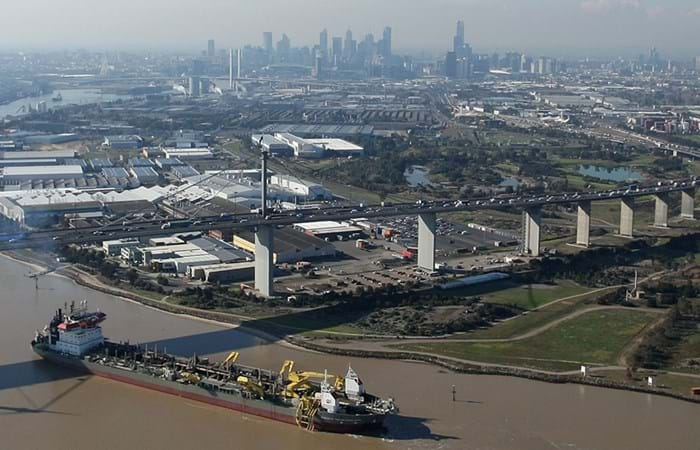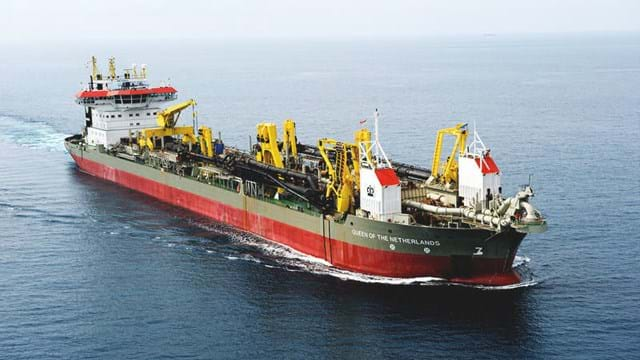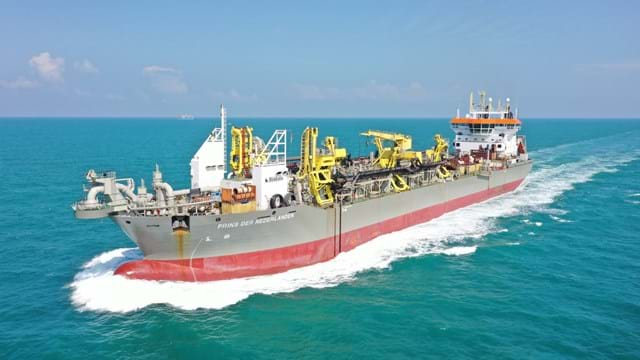To maintain its position as number one container and general cargo port in Australia, the Port of Melbourne Corporation (PoMC) proposed a plan to make the port accessible to 14m draught vessels during all tidal phases. Following the selection of a partner in April 2004 an Alliance Agreement was developed between PoMC and Boskalis Australia Pty Ltd, i.e, a contract where risk sharing was the norm and Boskalis could provide advice during the project development phase using its ‘in house’ expertise and experience.
Starting with the signing of the Alliance Agreement in May 2004, Boskalis Australia actively participated in the planning and preparation for the project. This led to the following actions:
- Dredging the entrance
- Service pipeline protection works (separate fact sheet available)
- Removal of contaminated silt in the Yarra River
- Assisting with the supplementary environmental effects statement (SEES) (separate fact sheet on environmental management available)
Succesful completion
In total 22M m3 of material was dredged during the project. For the service protection works, 61,000 tonnes of rock were placed with high precision. Both
PoMC and stakeholders were fully satisfied with the high environmental performance achieved while the project was completed well within budget and time. The overall success of the project was recognised by the industry through the award of ‘2010 Project of the Year’ by Infrastructure Partnerships Australia.


